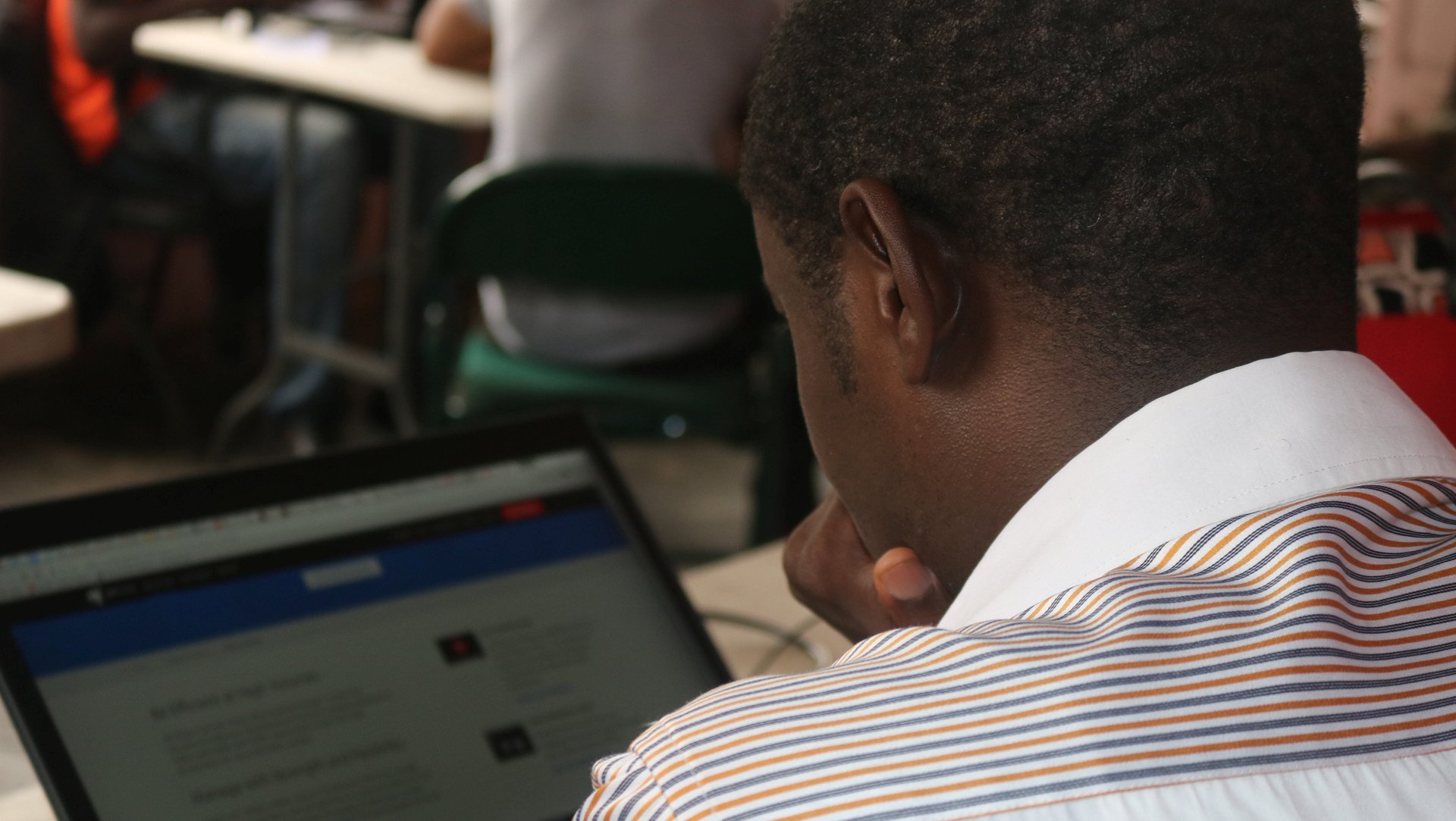Economists are banking on young digital entrepreneurs to pull Africa back from Covid-19
The African Development Bank (AfDB) is hoping that the digitalization of economies and companies in response to the coronavirus pandemic will help the continent recover quickly from its associated economic shocks. To this end, the finance institution is looking to establish investment banks to accelerate ventures by the continent’s young, tech savvy innovators.


The African Development Bank (AfDB) is hoping that the digitalization of economies and companies in response to the coronavirus pandemic will help the continent recover quickly from its associated economic shocks. To this end, the finance institution is looking to establish investment banks to accelerate ventures by the continent’s young, tech savvy innovators.
Like much of the world, Covid-19 lockdowns in Africa prompted a migration to online platforms, forcing government employees to become more digitally literate, and sectors like telecom and banking to invest in systems to support remote working. The AfDB believes “an all-out effort to harness digital technologies” will boost productivity and employment. If it does, it could help abet a steep decline in economic performance for the region, and cushion the impact of hits taken by the oil, tourism, and mining-dependent countries.
“Accelerated digitalization in Africa resulting from pandemic-related containment measures continues to boost the productivity of human and physical capital in the private and public sectors,” said AfDB in its recent Africa regional economic outlook report, released March 12.
Investing in African entrepreneurs
The AfDB, a regional funder of infrastructure and economic capacity in Africa, projects the continent will grow by 3.4% in 2021 and by about 4% in 2022, compared to a contraction of 2.1% in 2020 mainly as a result of the pandemic.
Growth for 2021 is however dependent on “accelerated digitalization to boost productivity” and access to Covid-19 vaccines. “Modest fiscal stimulus packages” deployed by countries such as South Africa will also boost “additional aggregate demand, which could help crowd in private investments and consumption.”
The digitalization agenda is resonating with many business executives in Africa. Ahmed Mokhles, group chief operations officer for Liquid Intelligent Solutions (an Africa-focused cloud computing, data center and internet wholesale previously branded as Liquid Telecom) said on Monday that the pandemic has “accelerated the need for everyone to think digital.” Liquid, which this week launched a 5,000 km (3,100 miles) digital fiber link in the Democratic Republic of Congo (DRC), is also building a big data center in Nigeria which is projected to be completed this year.
These and other digital initiatives across Africa are expected to avail the much needed impetus to accelerate digitalization—although infrastructure is only one part of the picture.
A more digitized Africa could feed the capacity and capability of its youthful, tech-savvy innovators, many of whom are coming up with digital solutions to the continent’s challenges through initiating and building tech start-ups. As part of measures to boost access to capital by the continent’s innovative youths, the AfDB’s president, Akinwumi Adesina, has revealed that the regional financier is looking at establishing and funding investment banks that are specifically modeled to be friendly and accessible for the continent’s young founders. This comes as most of the region’s youth-led ventures are struggling to raise capital for their innovations.
“We need to build a better financial system around Africa’s young people,” Adesina said during the virtual launch of the AfDB report, highlighting that banking institutions have to re-model their approaches to embrace the culture of youths in Africa.
Speedy access to capital will certainly help African ventures provide and scale digital solutions to the continent’s challenges. This is the kind of launchpad that Africa requires as it pursues recovery and growth from the Covid-19 slowdown.
Barriers to Africa’s recovery
The AfDB stresses however that any growth prospects for Africa are subject “to high uncertainty” from waves of coronavirus infections, potentially requiring lockdowns and quarantines. Covid-19 infections and deaths in some African countries such as Zimbabwe and South Africa have slowed down in the past few weeks, but there are already fears that a third wave could force regional economies back to lockdowns and movement restrictions. Moreover, the possible effects of natural and weather-related catastrophes, as well as increased conflicts in some regions, are also seen by the AfDB as drawbacks to Africa’s recovery.
Debt is also listed as a delicate burden for Africa, says AfDB, which notes that “African governments required additional gross financing of about $125 to $154 billion in 2020” to respond to the pandemic. This will likely push up the region’s average debt-to-GDP ratio in to over 70%, up from 60% percent in 2019, with six unnamed African countries “in debt distress” in addition to 14 others deemed “at high risk of debt distress” as of December 2020.
Central bank governors from the region are sure that there is little time to sit back and wait for recovery, opting instead to embrace the new norms emerging as a result of the pandemic. Lesetja Kganyago, the governor of the South Africa Reserve Bank, said at the launch of the report that Africa has to “learn to live with the virus” while at the same time working to recover from it.
Sign up to the Quartz Africa Weekly Brief here for news and analysis on African business, tech, and innovation in your inbox.